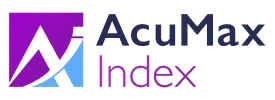As health benefits become increasingly important in attracting and retaining key talent, business owners find themselves exploring new options in offering coverage to employees without dramatically increasing costs. Businesses are increasingly opting for Health Savings Account (HSA) eligible plan designs and their myriad advantages over traditional insurance plans with large employer contributions. Let’s explore why HSAs might be an attractive option for your business.
Understanding HSA Options
What is an HSA? HSA’s are interest-earning accounts that may be used to pay medical expenses and must be coupled with a High Deductible Health Plan (HDHP). HDHP’s balance low monthly premiums against higher deductibles, and are most advantageous to employees who don’t incur large routine health costs. However, by coupling these plans with an HSA option, employees are able to set aside tax-free money to pay for medical expenses including costs up to their deductible, costs after their deductible and even some things not covered by their health plan. If an employee doesn’t spend all of the funds in their HSA they can save these funds year over year if they aren’t needed; unlike Flexible Spending Account (FSA) which expire at the end of the plan year.
How Business Benefit from HSA Eligible Plans
HSA plans allow businesses to offer comprehensive coverage to employees at a lower cost. HDHP options carry lower premiums, allowing businesses to lower the costs of any premium contributions they make. Additionally, employer contributions to HSA accounts are not subject to FICA or FUTA taxes, allowing employers to offer actual monetary compensation to employees without additional business tax or employee withholding implications. Because HDHPs are insured plans, the insurer, rather than the business, is responsible for all annual reports; including the required IRS 1095-B form.
How Employees Benefit from HSA Options
The long term financial benefits of HSA accounts don’t end with the business owner. Employees who begin contributing early in their careers can start setting aside funds, tax-free, for later in life when they are more likely to incur larger medical expenses. Employees may also invest unused funds held in their HSA accounts, and take non-health-related distributions penalty-free after age 65. With HSA contribution limits set to rise next year, HSA investments have become a viable option for employees nearing retirement to set aside additional funds tax-free, even after reaching the IRS contribution limits on their 401k retirement accounts. Employees who begin contributing early in their careers can potentially grow their accounts, amassing a considerable amount of funds to have available for medical or retirement needs later in life.
People Optimization Platform
Tailored Solutions
Helpful Resources
Our Company
Unlock your organization’s full potential with the industry’s premier pre-employment and people optimization platform.
- Contact Our Sales Team | (313) 914-5885
- Contact Customer Support | (313) 914-5885
Experience the power of the AcuMax Index firsthand with a FREE assessment and personalized analysis today!
- © AcuMax Index, 2025. All Rights Reserved.





